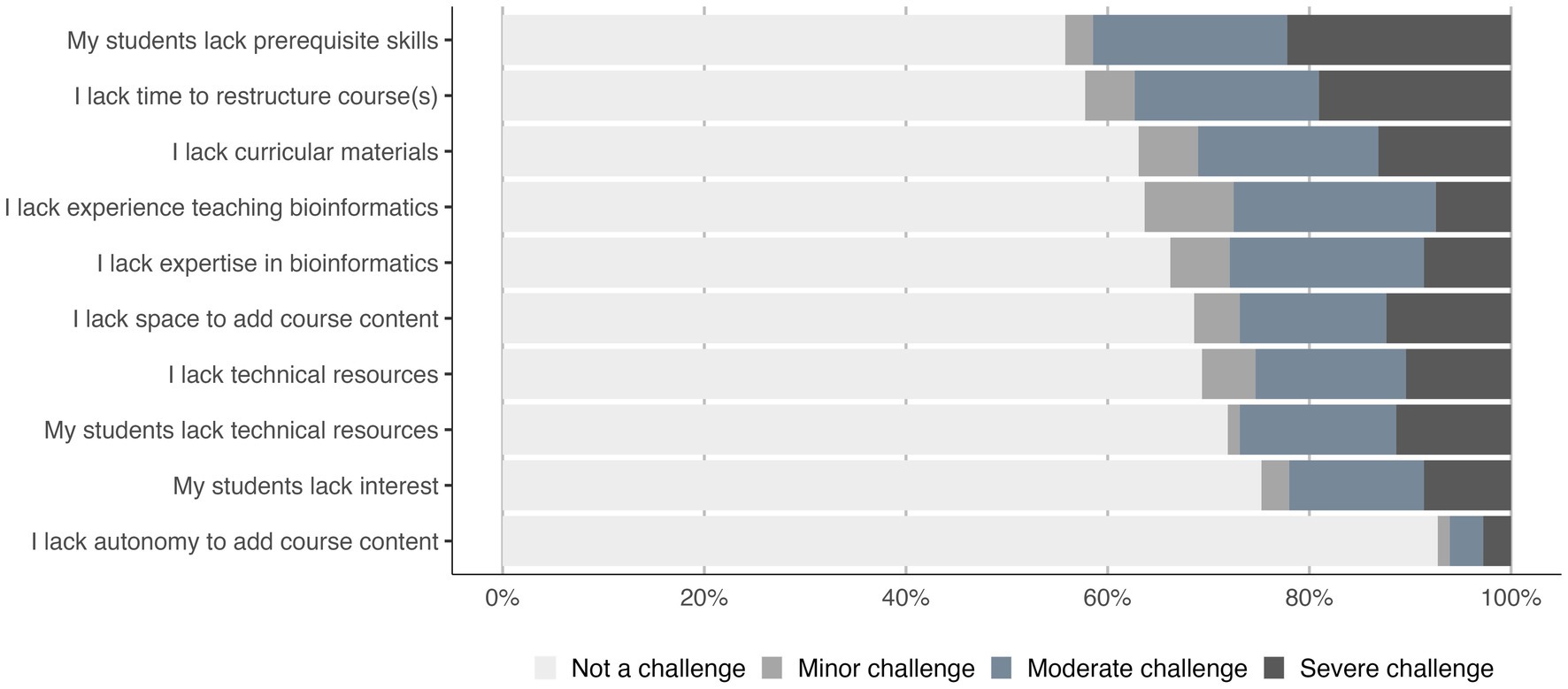Some Known Details About Bioinformatics Tutor
Some Known Details About Bioinformatics Tutor
Blog Article
All about Bioinformatics Tutor
Table of ContentsThe smart Trick of Bioinformatics Tutor That Nobody is Talking AboutIndicators on Bioinformatics Tutor You Need To KnowOur Bioinformatics Tutor PDFsThe Only Guide to Bioinformatics TutorThe Facts About Bioinformatics Tutor Revealed
Of the overall participants associated with the training, 80% were pupils from public higher education and learning establishments, while the staying 20% came from exclusive institutions. To get approved for a certificate of involvement, students were called for to attend a minimum of 90% of the overall training hours. As an outcome of this demand, an impressive 95% of the individuals successfully gotten their certificates, having not just met the minimum participation criteria however also completed all assigned activities throughout the training.
Throughout the height of the COVID-19 pandemic, especially between June and August 2020, the project team was entrusted with organizing specialized training in bioinformatics. This training was specifically aimed at pupils from the research study team Nucleus for Study in Applied Computing at the Federal College of Pará (UFRA) The adjustment to remote learning systems due to the pandemic produced a possibility to check out brand-new teaching methods and digital devices that enhanced both reach and effectiveness.
This course was made to give an easily accessible yet detailed summary of Artificial Intelligence strategies, specifically as applied in bioinformatics (Bioinformatics Tutor). This virtual layout allowed participation from students throughout Brazil, numerous of whom might not have had the possibility to go to in-person sessions.
Bioinformatics Tutor Things To Know Before You Buy
A notable function of this course was its focus on hands-on learning. Around 50% of the total training hours were devoted to practical tasks where pupils developed smart models and applications in a variety of scientific domains, consisting of genetics, molecular biology, and environmental data evaluation. Widely made use of devices and structures such as Spyder, Google Colab, Jupyter Notebooks, and Orange were integrated right into the coursework. These systems enabled trainees to involve in real-time data control, version training, and algorithm testing.
Sixty of them were connected with numerous greater education and learning organizations in the state of Pará, while the staying twenty came from organizations found in five other Brazilian states. By presenting Artificial Knowledge in a relevant and useful context, the campaign offered to connect the gap between concept and real-world application, supplying trainees with a solid foundation for future study or work in the area.
The training effort formed component of a wider scholastic outreach effort known as the Bioinformatics on the Road task. This job has, throughout the years, introduced lots of students to the world of bioinformatics and computational biology. The events held under this umbrella effort have occurred throughout several areas and years, as summed up in Table 1 (List of occasions, places, years, and total varieties of students and teachers)
Several of these groups, originally brought with each other by their involvement in training occasions, have actually because gone on to create independent clinical research in partnership with neighborhood academic establishments. The training not only promoted clinical reasoning within the context of bioinformatics but likewise stimulated joint relationships that prolonged past the training setting.
Rumored Buzz on Bioinformatics Tutor
The same group, leaving out IH and RR, likewise acted as tutors for the useful training modules. Funding for the task was given with the grant 88887.200562/ 2018-00 from CAPES.
The Federal College of Pará's Workplace of Research (PROPESP/UFPA) additionally supplied financial backing, especially for the production of the last manuscript. The writers declare no business or monetary problems of interest that can have affected the research. All opinions and analyses expressed in this post are entirely those of the writers and do not always show those of their particular organizations, the author, editors, or reviewers entailed in the publication procedure.

8 Simple Techniques For Bioinformatics Tutor
From a pedagogical point of view, the teaching technique used in the training was purposefully interactive. Courses were conducted in a manner that urged trainee participation and conversation, surpassing rote memorization to discover just how ideas are created, applied in everyday life, and tested in academic setups. The instructional approach concentrated on nurturing both solid and struggling from this source trainees, giving individualized support, and structure confidence with continual mentorship and patience.

Each team, containing roughly 36 individuals, was sustained by three advisors-- a lot of whom were postdoctoral scientists with specific proficiency. These coaches not only aided develop the team jobs yet likewise facilitated their implementation, making sure that each research study concern was both suitably difficult and pertinent. The visit site goal was to give a biologically realistic context that participants can check out via open-ended purposes and access to curated datasets.
For extra understandings into the technique and outcomes of this project-based discovering approach, visitors are routed to S1 Text, that includes in-depth summaries of the pedagogical structure, evaluation techniques, and project styles made use of in the training sessions.
What Does Bioinformatics Tutor Do?
Of the total amount participants entailed in the training, 80% were trainees from public greater education and learning why not check here establishments, while the remaining 20% came from private organizations. To qualify for a certificate of involvement, students were required to go to at the very least 90% of the complete training hours. Especially, past the pupils that enlisted in the training sessions, 7 experienced instructors participated in delivering the courses, while three dedicated research teachers worked with the total training procedure. About 50% of the complete training hours were committed to functional tasks where trainees developed intelligent models and applications in an array of clinical domain names, including genetics, molecular biology, and environmental information evaluation. The training not just promoted scientific reasoning within the context of bioinformatics yet likewise stimulated collaborative relationships that expanded past the training atmosphere.
Report this page